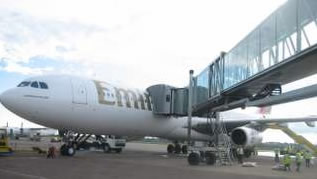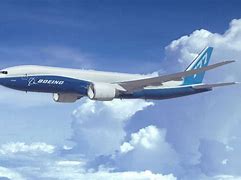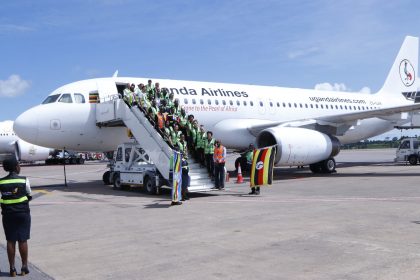Emirates sees slow post-Covid recovery for air travel as group books USD456 million profit for 2019/20

The Emirates Group scraped through a 45-day closure of the main runway at its Dubai hub and the effects of Covid-19 at the tail end of its accounting year to report a USD 456 million profit for the financial year to March 31, 2020.
Down 28pc on the previous year, the results mark the 32nd consecutive year of profit, for the gulf carrier. Group revenues topped USD 28.3 billion, but were down 5pc over 2019 results. Cash balance was at USD 7.0 billion, up 15pc on the previous year. The Group attributes the result robust business performance up to February 2020 and lower fuel cost compared to previous year.
Total passenger and cargo capacity declined by 8pc to 58.6 billion Available tonne kilometers (ATKMs) at the end of 2019-20, due to the DXB runway closure capacity restrictions. Total operating costs shrunk 10pc year on year on the back of a 9pc decrease in jet fuel prices. Combined with a 6pc reduction in capacity, the fuel bill declined by 15pc to USD7.2 billion, accounting for 31pc of operating costs, compared to 32pc the previous year. But the airline booked a USD 299million loss in fuel hedging pegged to the sharp fall in oil prices starting late 2019.
However, unlike last year when it declared a USD136 million dividend to its principal shareholder, the Investment Corporation of Dubai, the group has this year deferred dividends to better ride the turbulence generated by the difficult business environment emanating from the Covid-19 pandemic. Profits have been retained to shore up Group liquidity in addition to, and to protect the Group’s liquidity position.
Sheikh Ahmed bin Saeed Al Maktoum, the Chairman and Chief Executive Emirates Airline Group, says the business had been on track to achieve its 20219-20 targets but prospects were impacted by the pandemic in the final month of the accounting year; a sharp appreciation of the greenback which shaved USD262 million off profits, competition and a weak market for cargo.
“For the first 11 months of 2019-20, Emirates and dnata were performing strongly, and we were on track to deliver against our business targets. However, from mid-February things changed rapidly as the COVID-19 pandemic swept across the world, causing a sudden and tremendous drop in demand for international air travel as countries closed their borders and imposed stringent travel restrictions.
“Even without a pandemic, our industry has always been vulnerable to a multitude of external factors. In 2019-20, the further strengthening of the US dollar against major currencies eroded our profits to the tune of AED 1.0 billion ($273 million), global airfreight demand remained soft for most of the year, and competition intensified in our key markets,” Maktoum said.
A USD 16 billion investment in orders for 50 A350 XWBs, and a US$ 8.8 billion order for 30 Boeing 787’s During the Dubai Airshow last year is expected to add flexibility to long-haul operations, he explained.
Maktoum predicts that it will take 18 months before passenger traffic recovers to pre-Covid levels and “the COVID-19 pandemic will have a huge impact on our 2020-21 performance.”

 Brussels Airlines to announce Nairobi service
Brussels Airlines to announce Nairobi service
 SITA promises enhanced travel experience after Materna acquisition
SITA promises enhanced travel experience after Materna acquisition
 Saudia’s 105 aircraft order stretches A320neo lead over rival Max
Saudia’s 105 aircraft order stretches A320neo lead over rival Max
 Boeing refuses to pay hackers $200 million for stolen Data
Boeing refuses to pay hackers $200 million for stolen Data
 Uganda-Tanzania announce date for second joint business forum
Uganda-Tanzania announce date for second joint business forum
 Uganda Airlines leased A320 arrives in Entebbe
Uganda Airlines leased A320 arrives in Entebbe
